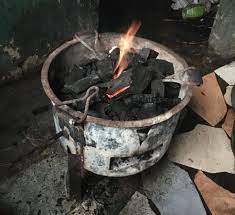As kerosene and cooking gas prices soar, many Nigerians are turning to charcoal stoves and firewood for their cooking needs. Brands like ‘Joko’ are capitalizing on this trend, offering efficient and durable charcoal stoves as an alternative. These stoves are praised for their fast cooking times and fuel efficiency.
Hauwa Ladan, a resident of Mararaba, attests to the economic and practical benefits of charcoal stoves, recommending them to others. She highlights the financial strain that high gas prices impose on households across Nigeria.
Despite the advantages of charcoal stoves, there are environmental concerns. The use of firewood and charcoal contributes to deforestation, air pollution, and ecosystem degradation. Nigeria has already experienced significant forest loss, primarily due to agricultural expansion and logging.
The National Bureau of Statistics reports a 38% increase in cooking gas prices, prompting many to seek alternatives. Dr. Temitope Oyetunji, a family health doctor, warns of the health risks associated with burning firewood, including respiratory and heart diseases.
The World Health Organization emphasizes the urgent need to reduce fossil fuel usage to mitigate air pollution and its impact on global health. Analysts suggest promoting sustainable practices, such as reforestation and efficient use of wood, as solutions to these environmental challenges.
Environmentalists like Newton Jibunoh stress the importance of trees in maintaining biodiversity and regulating water cycles. They advocate for sustainable cooking practices and alternative energy sources to mitigate the environmental impacts of traditional fuels.
In conclusion, the shift to charcoal stoves highlights the need for sustainable solutions to Nigeria’s energy challenges. Addressing supply chain issues and promoting alternative energy sources can help mitigate environmental degradation while ensuring access to affordable cooking fuels.
Share On:
CLICK HERE TO PROMOTE YOUR MUSIC/VIDEO

